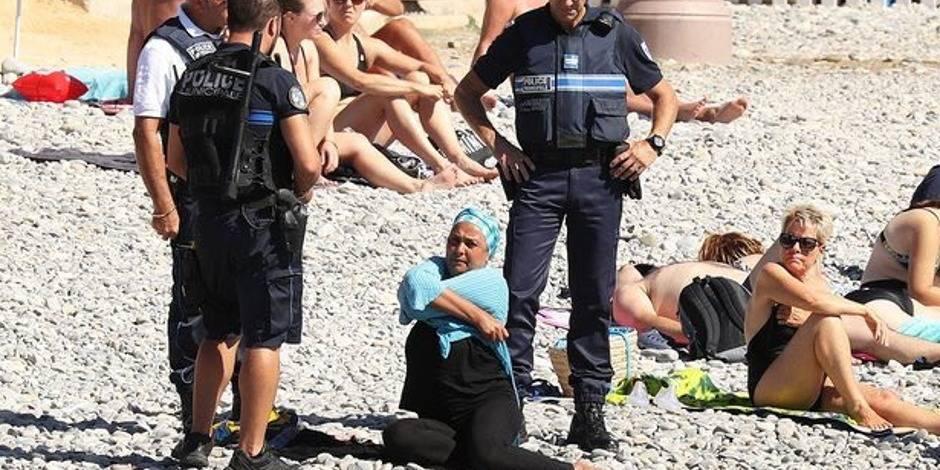France: understanding the political phenomenon Eric Zemmour (which should strengthen in the coming days)
Journalist and right-wing political essayist, Eric Zemmour is not yet a declared candidate for the presidential election, but there is little mystery: he should indeed be. Many articles deal with his very right-wing political positions, marked above all by opposition to Islam in France and to immigration in general. These ideological questions will not be addressed here: this article explains the strategic positions that make the current success of Zemmour (1).
This is an important change for understanding the French political landscape, since Zemmour thus enters the very restricted club of potential opponents of Emmanuel Macron for the second round of the presidential election, with Marine Le Pen, Xavier Bertrand and Jean-Luc Melanchon.
Eric Zemmour tops French book sales with "La France n'a pas dit son son dernier mot", and it has risen from 3% in the polls before the summer to 11% today, dropping Marine Le Pen (National Rally) from 28% to 18%. (Update on October 2: Zemmour is now at 15% and Le Pen at 16%, a fall of 12 points in a few days for Marine Le Pen).
Some think that Eric Zemmour is a "candidate fabricated by the media" which will deflate, a bit like that of Jean-Pierre Chevènement in 2002. This may be the case, totally or partially, but Eric Zemmour is not for the moment only in the take-off phase: as specified, he is not even a candidate. His breakthrough in the polls and public opinion should go even higher.
Indeed, Eric Zemmour has probably not yet really finished gathering a popular electorate, which is more and more sensitive to his theses. For comparison, during the presidential election of 2007, Nicolas Sarkozy had succeeded in seducing a large part of the popular electorate of Jean-Marie Le Pen, but not his public anchored in a nationalist and/or sovereignist ideology. This time it's the opposite: it's the conservative, right-wing ideologues of the nationalist/sovereignist camp who have already gone to Zemmour because they no longer recognize themselves much in Marine Le Pen (2). The “not-yet-candidate-Zemmour” is therefore now on the hunt for popular voices. The fact that he is not a candidate allows him to not answer any (or almost) questions that are not related to the nuclear heart of his campaign: immigration in France and Islam.
De facto, “Z” (as he is nicknamed) tries (so far successfully) to occupy several potential spaces: a right-wing space, a populist space, and an anti-immigration space. On the other hand, while he is very eurosceptic, he will not go on this ground, nor on that of the pandemic or any other question which could divide the aforementioned spaces. He is betting that the theme of immigration alone can put him in a position to be a leader in the three political spaces he covets.
An anti-immigration political space
Jean-Marie Le Pen has always had relative success (below 20%) because of his positions on immigration. Since he left his party to his daughter Marine in 2011, she has tried to broaden his electoral base by "de-demonizing" the party (this is the quasi-official term), including changing its name. Profiles and remarks that could seem brutal have since been excluded from the National Rally. During certain electoral campaigns Marine Le Pen spoke very little about immigration, and in any case much less than her father.
Initially, she benefited from her father's aura on these issues. As a result, it effectively expanded its number of supporters. But while gradually disappointing its radical electoral base.
More broadly, as a result, this issue of immigration was no longer addressed by any candidate in the French elections. Zemmour has just seized it. No one knows what the current size of this electoral space is, but judging by the polls, it seems to be quite large.
Marine Le Pen will undoubtedly try to return to this field and compete with Zemmour. But he is already taking positions that are already more radical than them, in particular on what he calls “the incompatibility of Islam with France“.
In addition, Zemmour creates "buzz", debate, and sometimes scandalizes its opponents on this immigration/Islam issue. In doing so, it is he, for the moment, who imposes the theme of the electoral campaign.

An “intelligence quotient” space
With a great political and historical culture, Eric Zemmour asserts himself as a candidate "with a high intelligence quotient," like Emmanuel Macron and Jean-Luc Mélenchon, for example. He is already playing it when he declares (everywhere): "Marine Le Pen will never be elected President of the Republic, everyone knows it since her 2017 debate".
A space to the right
Zemmour thinks that the potential candidates of the Republicans are too centrist and leave space for a right that he describes as the “RPR” tendency, named after the party created once Jacques Chirac. De facto, the “LR” candidates who are looming for this presidential election are Xavier Bertrand and Valérie Pécresse, who had left Les Républicains because they considered Laurent Wauquiez too right. Eric Zemmour assures that Pécresse and Bertrand are close to the positions of Emmanuel Macron. The voters will confirm or not his certainty, but indeed it could be that a space exists on the right.
A populist space
Zemmour knows it, for a few years in a large number of Western countries the political debate opposes two forces: one "technocratic and centrist", close to the banks (or in any case to their orthodoxy in terms of economic stability), and the another force that can be described as "populist". This was the case in the United States, Brazil, Italy, Great Britain with Brexit, etc. Whoever shouts the loudest (or causes the most scandal) then wakes up abstainers and rallies a large number of voters. Donald Trump had folded his first presidential election into four letters: “WALL”, or in any case by a declaration: “We are going to build a wall on the border with Mexico, and it is the Mexicans who will pay for it”.
If, physically, Zemmour and Trump are a bit of opposites, on the other hand they have some strategic points in common. As Zemmour says: “I am not a politician and I will never become one”. Although he (like Trump) is one of the elites, neither of them are professional politicians, and they can embody a certain distrust of “professionals”. It is undeniably part of the “populist panoply”.
It seemed obvious that a candidate was going to rush into this populist space that Zemmour has seen taking shape for years. If he is not yet a candidate, it may also be because Zemmour finds it difficult to realize that this space has thus been left completely free to him!
Some will object: “but there is also Marine Le Pen on this right-wing populist space”. Admittedly, Marine Le Pen is on “catch-all” positions, in line with what many people think, and it is undeniably possible to put her in the “populist” category. But populism is not just an idea. It is also a strategy that requires making a lot of noise. And you just have to open your ears to hear where the noise is coming from.
And for Zemmour the result will be…
…difficult to predict. For the reasons mentioned above Zemmour should continue to rise in the polls in the coming days. As with Trump, if his opponents denounce "slippages" during the campaign, they could in fact benefit him by allowing him to continue to dominate the media arena. Besides, Zemmour has been on TV every day for years, so don't count too much on a fatal faux pas on his part. He could therefore continue to dominate his political camp, that is an option. Trump had succeeded in imposing himself by force on the Republican Party. In France it seems that political parties are less important than before. In addition, electoral expenses are reimbursed by the State, and it is therefore easier to carry out a political take-off.
But, of course, the political parties will react. The other candidates will start one day… and play a different score from his. It remains to be seen which song will resonate best with the ears of the French… And then, if immigration is a target during this election… the other target should quickly become Zemmour! Does he have the shoulders to endure all of this, but also the shoulders of a "presidential candidate"? Answer in the next few months.
– 1 – Our Canadian readers will be able to get an idea of Eric Zemmour's ideological positions with the name of the person who has just succeeded him on the CNews television channel, since it is the Quebec sociologist Mathieu Bock-Côté, who is both sovereigntist, right-wing, and militant against the "woke" and politically correct movements.
-2- In addition to the nationalists, the Front National also once had the Pieds Noirs repatriated from the Maghreb as a “captive” electorate. But 60 years after their arrival, if they still exist, they no longer constitute a real political force in France nor an unshakeable pillar for Marine Le Pen as it was in the time of her father.
Update October 2: Marine Le Pen has just lost another "pillar" (if there is one!) of Lepenism, her own father, Jean-Marie Le Pen, has just declared that he would support Zemmour if he he was in the best position to win.
ADVERTISEMENT :








